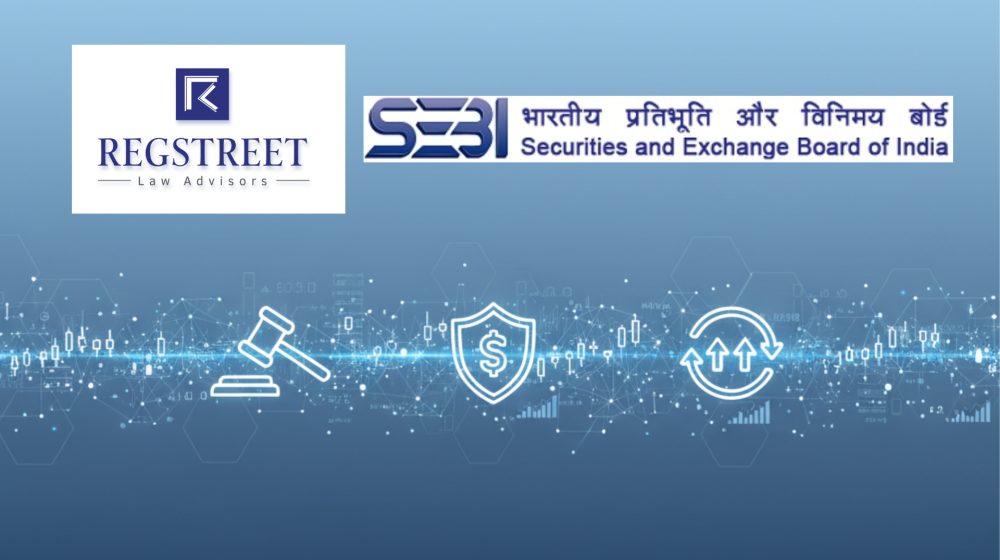SEBI has notified amendments to the SEBI (Listing Obligations and Disclosure Requirements) Regulations, 2015, effective November 18, 2025. These changes impact how listed entities handle related party transactions (RPTs), subsidiary-level deals, and communication norms.
1. 𝐀 𝐧𝐞𝐰 𝐠𝐚𝐮𝐠𝐞 𝐟𝐨𝐫 𝐬𝐢𝐠𝐧𝐢𝐟𝐢𝐜𝐚𝐧𝐭 𝐭𝐫𝐚𝐧𝐬𝐚𝐜𝐭𝐢𝐨𝐧𝐬 𝐰𝐢𝐭𝐡 𝐑𝐞𝐥𝐚𝐭𝐞𝐝 𝐏𝐚𝐫𝐭𝐢𝐞𝐬: The fixed INR 1,000 crore threshold under Regulation 23 is replaced with a new, flexible structure based on a company’s turnover (Schedule XII):
(a) in case of a listed entity with consolidated turnover up to ₹20,000 crore – 10% of the annual consolidated turnover;
(b) where consolidated turnover is more than ₹20,000 crore and up to ₹40,000 crore – ₹2,000 crore plus 5% of the turnover above ₹20,000 crore; and
(c) where consolidated turnover exceeds ₹40,000 crore – ₹3,000 crore plus 2.5% of the turnover above ₹40,000 crore, or ₹5,000 crore, whichever is lower.
Therefore, large companies with higher turnover will now have a higher threshold for what is considered a ‘𝘮𝘢𝘵𝘦𝘳𝘪𝘢𝘭’ RPT. This can reduce the compliance load for their larger-scale operations. For smaller companies, the rules ensure that transactions meaningful to their size still receive the necessary oversight from the audit committee and shareholders.
2. 𝐓𝐢𝐠𝐡𝐭𝐞𝐫 𝐠𝐨𝐯𝐞𝐫𝐧𝐚𝐧𝐜𝐞 𝐟𝐨𝐫 𝐒𝐮𝐛𝐬𝐢𝐝𝐢𝐚𝐫𝐲 𝐝𝐞𝐚𝐥𝐬
The amendment sets clearer requirements for transactions where a listed company’s subsidiary is involved, but the parent company is not. It now requires the parent’s audit committee to review these deals if they cross certain limits relative to the subsidiary’s own financial size.
This change closes a potential gap in governance. It ensures that significant deals within the wider corporate group cannot bypass proper scrutiny, making the listed entity more accountable for its entire group’s actions.
3. 𝐂𝐥𝐞𝐚𝐫𝐞𝐫 𝐭𝐢𝐦𝐞𝐥𝐢𝐧𝐞𝐬 𝐚𝐧𝐝 𝐬𝐦𝐨𝐨𝐭𝐡𝐞𝐫 𝐜𝐨𝐦𝐦𝐮𝐧𝐢𝐜𝐚𝐭𝐢𝐨𝐧
Sub-regulation (4) of the Regulation 23 now confirms that a general approval from shareholders for RPTs is valid only until the next Annual General Meeting. This means that companies can no longer rely on old, broad approvals for new transactions, ensuring ongoing shareholder involvement.
Further, the amendment also formalizes the use of web-links and QR codes for sending annual reports to holders of non-convertible securities also given under Regulation 58. It should be noted that such method was already available to other shareholders due to application of Regulation 36(1)(b).
Readers are welcome to share their views with REGSTREET LAW ADVISORS on info@regstreetlaw.com

